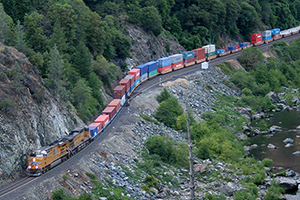Rail Customer Group Plans to Lobby Congress About Rail Competition

The Rail Customer Coalition, which includes 48 trade groups representing shippers, plans a lobbying effort on Capitol Hill to dramatize its view that a Surface Transportation Board regulatory proceeding evaluating increased rail competition needs to be finalized.
At issue is STB’s proposal to allow a second railroad to access customers now served by a single carrier in order to enhance competition through a switching arrangement. The plan, if adopted, would require railroads to provide those services, which now are done through voluntary arrangements between carriers.
The group includes the National Industrial Transportation League, Edison Electric Institute and the Steel Manufacturers Association as well as organizations that represent chemical, agricultural and other interests.
There is widespread recognition in Congress and among virtually all rail customers that modernization of current STB rules is badly needed,” said a letter sent to Republican and Democrat leaders of committees with rail oversight authority. “Competitive switching is expressly allowed by statute, but it has never been permitted by the STB because of overly restrictive regulations at the Board.”
“In light of its oversight role and that members of the relevant committees are watching these issues, the coalition wants to make sure Congress is aware of the widespread and strong support for competitive switching as well as other reforms,” said Scott Jensen, a spokesman for the group, when asked why shippers were lobbying Congress on a regulatory issue. “We want to make sure Congress fully understands what the STB is doing and why the rulemakings they have opened are an important next step to resolve ongoing rate and service issues.”
He also said that the shipper groups are seeking counter opposition to the expanded switching plan from the Association of American Railroads. The group that represents freight carriers has said that adding rail-to-rail competition would hurt revenue, profits and the ability to reinvest in the U.S. rail network to the benefit of customers.
The rail coalition says that it represents industries that generate $2.4 trillion in economic activity.

